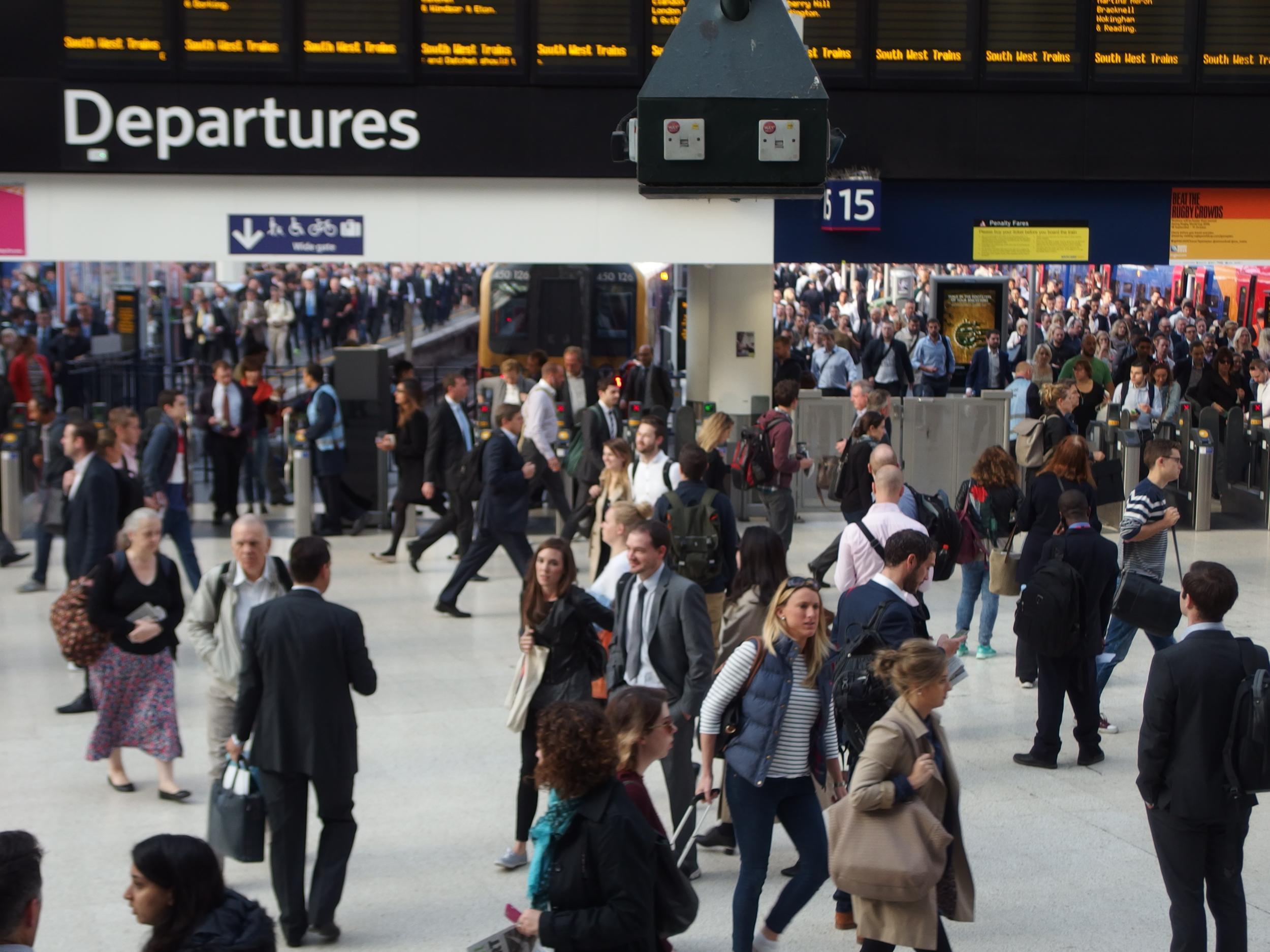Train fares: as wages stagnate, rail passengers face soaring fares
Scottish travellers face smaller rises in off-peak fares

Your support helps us to tell the story
From reproductive rights to climate change to Big Tech, The Independent is on the ground when the story is developing. Whether it's investigating the financials of Elon Musk's pro-Trump PAC or producing our latest documentary, 'The A Word', which shines a light on the American women fighting for reproductive rights, we know how important it is to parse out the facts from the messaging.
At such a critical moment in US history, we need reporters on the ground. Your donation allows us to keep sending journalists to speak to both sides of the story.
The Independent is trusted by Americans across the entire political spectrum. And unlike many other quality news outlets, we choose not to lock Americans out of our reporting and analysis with paywalls. We believe quality journalism should be available to everyone, paid for by those who can afford it.
Your support makes all the difference.Millions of rail travellers are waking up to sharply increased fares at a time when wages have stagnated. Regulated prices go up by an average of 3.4 per cent from today.
A weekly season ticket from Brighton to London Victoria costs £3.70 more than it did yesterday, rising to £108.30. For a typical five-day commute, each one-way journey costs £10.83 – over 20p per mile.
An off-peak return from Manchester to Birmingham is £1.30 more expensive, rising to £37.10. And the same ticket type on the longest through-train in Wales, from Cardiff to Holyhead, goes up by £3.40 to £98.
Regulated fare increases – for standard class weekly season tickets in England and Wales, most commuter fares around London and off-peak returns – are tied to the Retail Price Index (RPI) in the previous July. RPI in July 2017 was high as a result of the slump in sterling after the EU referendum.
The most recent Office for National Statistics figures for October show average weekly earnings fell by 0.2 per cent.
Anthony Smith, chief executive of the independent watchdog Transport Focus, said: “As many passengers return from their festive break, rail fare rises will bite as wages continue to stagnate.
“The best Christmas present for passengers next year would be a fares freeze. In the meantime, better-value ticket options to reflect more flexible working patterns or even just to spread costs would help.”
A spokesperson for the Department for Transport said: “We are investing in the biggest modernisation of our railways since the Victorian times to improve services for passengers – providing faster and better, more comfortable trains with extra seats.
“We keep fare prices under constant review and the price rises for this year are capped in line with inflation, with 97p out of every £1 paid going back into the railway.”
Scottish travellers face smaller increases in off-peak fares, because the government in Holyrood imposes a cap of RPI minus one per cent. A Glasgow-Inverness off-peak return rises by £1.50 to £57.70, an increase of 2.6 per cent.
Train operators can raise (or lower) unregulated fares, which include most standard open, advance and super-off-peak tickets, as they wish. Virgin Trains is freezing many of its anytime fares – typically used by business travellers – with Birmingham to London Euston staying at £88 one way.
But GWR is increasing the peak fare from Bristol Temple Meads to London Paddington by 3.6 per cent to £105.70.
An annual season ticket from Winchester to London tops £5,000 for the first time, going up £176 to £5,128.
Labour’s call for renationalisation of the railways is supported by the UK’s leading rail-fares expert, Barry Doe. He told The Independent: “Costs would fall if we could return to British Rail as that was a very efficient railway.
“A single railway run by professionals without government interference would solve all our problems.”
Join our commenting forum
Join thought-provoking conversations, follow other Independent readers and see their replies
Comments